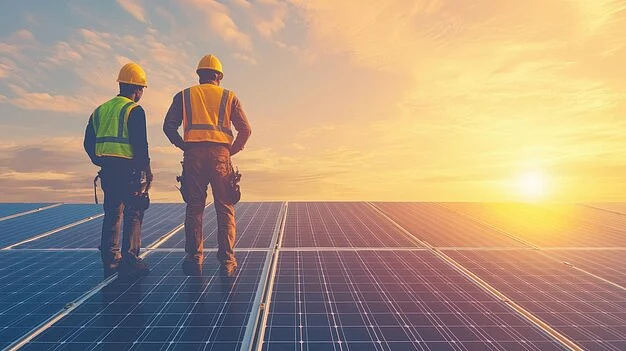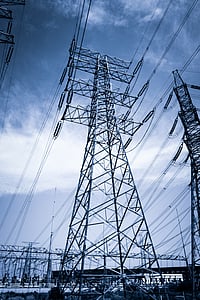The President-elect of the United States of America recently shot out a dire but widely expected warning, declaring that in his second term he would support the domestic fossil fuel industry at the cost of clean energy. The first casualty of such a change could be the Inflation Reduction Act, a potent US government incentive designed to promote the clean energy sector. This move is likely to be accompanied by a squeeze on funding for clean energy technology (unless legally guaranteed), especially in Republican states.
Externally, contributions routed to developing countries for fighting climate change, may dry up unless a clear quid-pro-quo is presented to the MAGA constituencies as a 'victory' for the US. The Environment Protection Agency could also find itself in the firing line. Most likely, the US would toughen trade barriers on Chinese imports, including green products, potentially opening an opportunity for India to position itself as a clean energy leader amidst the shifting political sands.
Trade Barrier
Owing to its socio-economic-political ambitions, driven by its focus on scale and massive state incentives, China has a stranglehold of the global clean energy market that encompasses a range of low-carbon products, including solar panels, wind turbines, batteries, and electric vehicles. However, it is widely believed that a spate of punitive policies, including high import duties, following Trump’s January inauguration, could shake loose Beijing’s grip on this fast growing and strategically vital sector. It is a safe bet that Trump would further raise the trade barriers imposed on China by the Biden-Harris administration.
Clearly but far more quietly, the European Union too has signalled its intent to restrict the import of cheap, state-subsidised electric vehicles (EVs) from China, an intent that could over time expand to cover a larger range of products from the manufacturing behemoth. Countries less dependent on China, including India, stand to gain significantly from the trade policies of the new American administration if they are able to implement their policies efficiently.
Although India is far from matching the performance, cost, and scale benchmarks set by China’s manufacturing giants, it has made indisputable progress in several areas. These include large-scale deployment of clean energy infrastructure, development of world-class capabilities in renewable energy plant design, operation of efficient clean energy hybrid power plants, execution of complex auction processes, real-time management of power grids and deployment of financially viable project management practices. The country could gain significantly if it expended the same strategy to other green sectors, including battery manufacturing, green hydrogen, and wind turbines.
With the world eager to cobble a 'China+ 1 supply model' around democratic economies, India faces a historic opportunity to create a catalytic environment that supports local talent pools and the industry while addressing a global supply chain imperative. India can establish a robust supply chain in green sectors largely independent of China, and it could gain a competitive advantage over other countries thanks to its big home market and cheap workforce.
Opportunity for India
The outgoing US government loosened its purse strings to incentivise green technology companies, which allowed them to increase their scale, be more efficient, and create innovative business models. The American leadership’s effort to integrate digital capabilities into energy systems for enhancing the efficiency of capital investments is noteworthy. As the new administration is expected to withdraw these incentives, India has the opportunity to attract the effected companies to its shores. Though India cannot match the financial prowess of the US, it can surely welcome clean-tech companies and startups, funding agencies, and policy experts who may feel disenchanted by the upcoming establishment in the US.
The government of India can encourage these businesses to expand their footprints in India through business partnerships, joint ventures, and special-purpose vehicles. Initiatives like expeditious grant of high-skill visas, repurposing existing technology and business incubation centres to match global standards, creation of single-window mechanisms for granting permissions or certificates and quick resolution of taxation-related issues, can go a long way in attracting such companies. Initiatives like Make in India, Atmanirbhar Bharat, Digital India, Skill India and Production-Linked Incentives, can be calibrated and improved based on inputs from offshore collaborators. India offers the compelling advantage of ready access to a highly talented, English-speaking workforce and huge domestic demand.
The European Union has taken the lead in providing legislative support to its goal of achieving net zero by 2050. India can draw valuable insights from the EU's ambitious and futuristic compliance frameworks while balancing the ambitions of its diverse populations. The upcoming Pravasi Bharatiya Divas in 2025 presents an apt occasion for India to rally its diaspora along the theme of climate action. Its large, diversified, and influential diaspora in the US can help it emerge as an anchor that enables the clean-tech industry.
(Prasad is an alumnus of the Indian Institute of Management, Ahmedabad, Indian Institute of Technology Bombay, and Aalto University, Finland. Jena is working as a sustainable finance specialist at the Institute for Energy Economics and Financial Analysis)


























